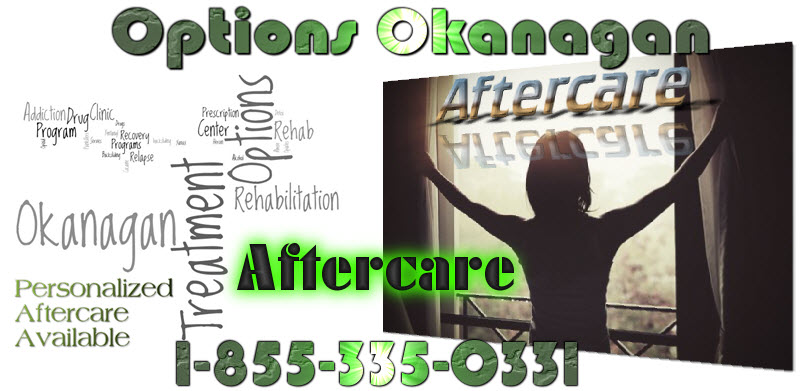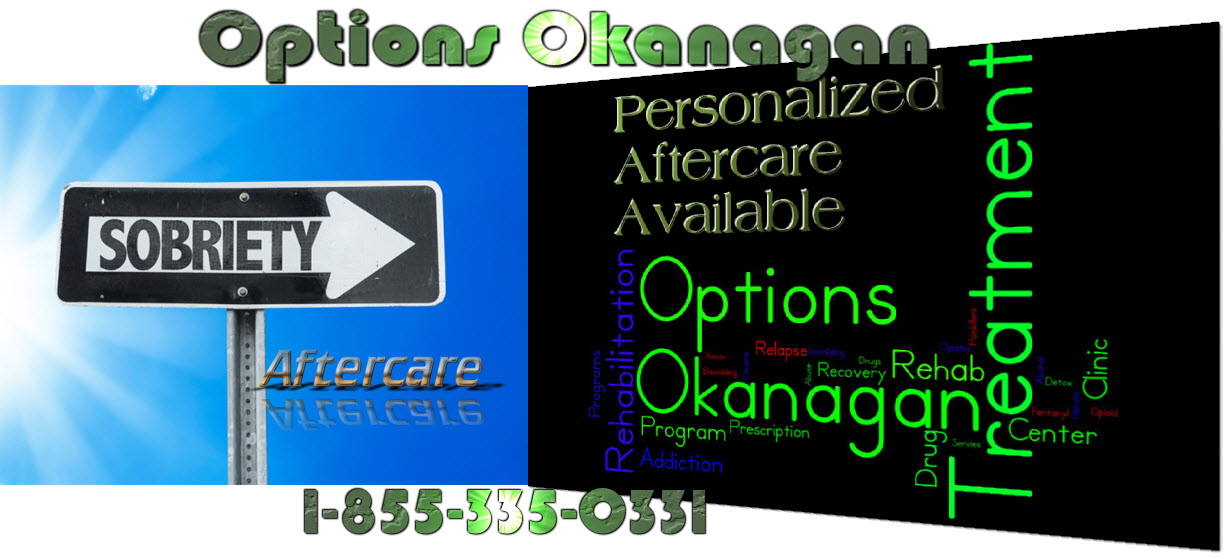Why Aftercare is Crucial for your drug and alcohol treatment in Vancouver, Victoria, Kelowna and other parts of British Columbia – Options Okanagan Treatment Center in Kelowna, British Columbia treating Opiate and Alcohol addiction and recovery.
Benefits of Aftercare
By providing an opportunity for continued support, counseling, or transitional living, programs for aftercare give individuals another layer of accountability that stands between them and returning to their substance of choice. These programs are a safe place where individuals can connect with other recovering addicts, advice for coping with temptation and stress, motivational speakers, and a mentor or sponsor.
Aftercare programs are also quite useful for the family and friends of those suffering from addiction issues. Many services include counseling sessions for the spouse, parents, children, or partners of the person with the addiction problem. Group therapy and educational seminars on the link between mental disorders and substance abuse can also serve as a great resource for friends and family. Family members are also welcome at various 12-step programs such as meetings of Narcotics Anonymous or Alcoholics Anonymous, who both have material tailored especially for family of the recovering addicts. These meetings serve as a place where family members can safely share their experience with addiction and gain the support of others in similar situations.
Finding The Right Program
If an aftercare program is to be effective, it must be tailored individually to the person. These types of plans usually are created as a joint effort between the individual and addiction specialist or counselor before they are discharged from their rehabilitation program. How complex the plan is will depend on what the person needs, what their home life is like, the environment they will be returning to, and their risk of relapse. The less that is left to chance, the better. Without a concrete plan, it is very easy for an individual to relapse and take up old habits. The aim of a good aftercare plan is to have nothing left to chance.
Basic Steps In Aftercare
No two aftercare plans will be identical, however, these basic steps are usually a part of the program.
1) Continuing therapy. Having therapy sessions continue beyond the period in the rehabilitation center will allow a person to continue working on any issues that they have that might have contributed to their addictions. Individuals who are new to recovery will have a greater chance of attending regular programs for recovery if they have someone to be accountable to.
2) Learning Triggers. A person needs to learn what triggers their addiction and how they can cope with them using workshops, group therapy, lectures, or individual therapy sessions. There are many different factors, psychological, social, or environmental in nature, that could trigger someone to return to their addiction. A loved one’s sudden death, losing their job, PTSD, or any sudden extreme sensation or emotion has a risk of driving someone to relapse. While initial discovery of these triggers may begin during their stay at rehab, returning to their normal life may trigger a host of new problems. This is where the importance of understanding triggers comes in during aftercare.
3) Coping with cravings and stress. After leaving rehab, a person may face a situation that they didn’t anticipate while in treatment. Even a good experience, like a new job, can cause stress and trigger a craving for their substance of choice. Aftercare programs include teaching skills on how to cope with stress and deal with cravings. Regular attendance at counseling or support groups will give additional structure to the person’s life, so when stress hits, they can reach out to their support system and reduce their chances of relapse.
4) Preventing relapse. Nobody is perfect. Even a person who is committed to recovery can suffer from a relapse, whether as small as a sip of alcohol or as large as using again. A lapse might appear to be minor, however, they can cause a very fast spiral downwards back towards relapse and substance abuse. A major part of an aftercare plan should be a plan for what to do if the person relapses. They should list 5 people who they can contact, such as a sober friend or sponsor), and 5 steps they can take to stop the abuse immediately, such as asking for a ride away from the situation or attending a support meeting. Thinking of the possible outcomes in case of relapse and having a plan in place to address any mistakes can reduce the chances that the person will seriously relapse.
Options Okanagan Opiate and Alcohol Treatment Centers in Kelowna, Salmon Arm and Vancouver, British Columbia – Men and Women are recovering and healing from Alcohol and Drug Abuse at our treatment center here in the Okanagan right now.
Our unique and distinctive Opiate Drug and Alcohol treatment program allows men and women to come in from Calgary as well as Edmonton as we offer airport pickup.
Numerous clients come to us from Vancouver, Calgary and Edmonton and other locations in Alberta and even other provinces for Opiate addiction treatment, heroin drug treatment, many other drug and alcohol addictions for rehabilitation because of the uniqueness of our treatment center.
Our Treatment Location:
Options Okanagan Opiate Treatment Center
551 Sherrydale Crescent, Kelowna, British Columbia, V1V 2E6
Toll Free Phone Number : 1-855-335-0331




